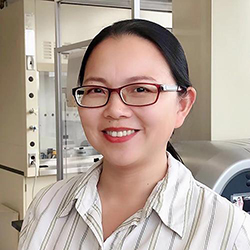Description
 Organoid technology enables long term 3D-culture of epithelial stem cells or tumor cells to recapitulate the tissue of origin. Tumor organoid lines can be derived from patients with different stages of disease, before or after treatment and retain the heterogeneity of the original tumor. An increasing number of research groups use organoid models for a variety of different studies of tumor evolution and treatment response for precision cancer medicine. Several groups established live organoid biobanks of different tumor types including colon, bladder, prostate, pancreas, liver and breast tumors. The advantage of 3D organoid culture over previously used 2D cell line cultures is the increased relevance to the tumor of origin. Drug screening using organoids may predict the efficacy in patients. Using the organoid technology, a large number of different drugs can be tested simultaneously to determine the active agents or combinations against particular tumors. Organoid cultures have high growth success rate and may reveal information about the biology of the cancers in addition to response to therapeutics.
Organoid technology enables long term 3D-culture of epithelial stem cells or tumor cells to recapitulate the tissue of origin. Tumor organoid lines can be derived from patients with different stages of disease, before or after treatment and retain the heterogeneity of the original tumor. An increasing number of research groups use organoid models for a variety of different studies of tumor evolution and treatment response for precision cancer medicine. Several groups established live organoid biobanks of different tumor types including colon, bladder, prostate, pancreas, liver and breast tumors. The advantage of 3D organoid culture over previously used 2D cell line cultures is the increased relevance to the tumor of origin. Drug screening using organoids may predict the efficacy in patients. Using the organoid technology, a large number of different drugs can be tested simultaneously to determine the active agents or combinations against particular tumors. Organoid cultures have high growth success rate and may reveal information about the biology of the cancers in addition to response to therapeutics.
Goals
Advise and assist investigators with the production of organoids to facilitate cancer biology, drug efficacy and toxicity evaluation of therapeutics towards tumor versus normal organoids that express different cancer gene mutants. Provide support for the growth and maintenance of organoid and spheroid cultures including passaging. Maintain a collection of established organoids that can be provided to investigators for research. Develop gene knockout and overexpression matched patient-derived organoids. Assist investigators with planning of drug screens working with the drug discovery capability. Provide support for grant submissions.
Contact
Director: Lanlan Zhou, MD, PhD
Assistant Professor (Research)
Joint Program in Cancer Biology
Department of Pathology & Laboratory Medicine
Brown University
Email: lanlan_zhou@brown.edu